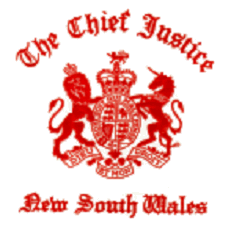 |
Practice Note No. SC CL 02
REPLACED Practice Note SC CL 02 - Criminal Proceedings
 PRACTICE NOTE SC CL 2
Supreme Court Common Law Division - Criminal Proceedings
PRACTICE NOTE SC CL 2
Supreme Court Common Law Division - Criminal Proceedings
Commencement
1. This Practice Note commences 17 August 2005.
Application
2. This Practice Note applies to committals for trial or sentence and ex-officio indictments in the Criminal List of the Common Law Division.
Definitions
3. None applicable.
Introduction
4. The purpose of this Practice Note is:
- to ensure that criminal proceedings are dealt with in a timely way; and
- to assist an accused person to take advantage of legislation which provides for a discount in sentence where an early plea of guilty is entered.
Listing for arraignment
5. Arraignments are held on the first Friday of each month in Sydney.
6. When committing an accused person for trial or sentence to the Supreme Court, the magistrate will direct the person to appear at the next arraignment, not less than 4 weeks after the date of the committal. If this practice would result in a January date, the matter will be listed on the first Friday in February.
7. Ex-officio criminal prosecutions will be listed by the registry in the same way.
Arraignment procedures
8. On the day fixed for the arraignment, the Director of Public Prosecutions shall present an indictment to the Court and shall provide copies of the indictment for each accused person.
9. The court expects matters to be ready to proceed at the first arraignment so that a trial date can be given. Legal representatives are expected to identify the issues for trial and estimate the likely hearing time required. The arraignment judge may give directions and rulings as to the conduct of the trial.
Entering a plea
10. Upon presentment of the indictment, the accused person will be arraigned by the Court and shall enter his or her plea. The Court may, if the indictment is not presented on the day fixed for the arraignment of the accused person, fix a further date for the arraignment of the accused and the presentment of the indictment.
Trial
11. By the date set for the trial, the matter must be ready to proceed. If there is an unavoidable problem or change to the conduct or length of the trial, legal practitioners are to notify the criminal registry or the criminal list judge at the earliest possible stage to avoid inconvenience to jurors and witnesses.
Direction under s.128 of the Criminal Procedure Act 1986
12. Prosecuting authorities are directed to present all indictments in the District Court, rather than in the Supreme Court, except for indictments relating to offences under any of the following sections:
- sections 12, 19A, 21, 22A and 24 of the Crimes Act 1900;
- sections 24, 24AA, 24AB and 78 of the Crimes Act 1914 of the Commonwealth;
- section 9 of the War Crimes Act 1945 of the Commonwealth;
- section 7 of the Geneva Conventions Act 1957 of the Commonwealth;
- section 8 of the Crimes (Internationally Protected Persons) Act 1976 of the Commonwealth;
- offences for which the maximum penalty is life imprisonment in a case in which either the Director of Public Prosecutions (Commonwealth) or the Director of Public Prosecutions of New South Wales has formed the opinion that the imposition of a life sentence may be appropriate.
13. It will be noted that, by reason of clause 22 of the Criminal Procedure Regulation 2005, the District Court currently does not have jurisdiction in respect of sections 12 and 19A of the Crimes Act 1900.
14. Subject to the usual practice as to joinder of counts, an indictment charging an offence under any of the above sections may also contain counts charging other offences.
15. Applications for exemption under section 128(2) of the Criminal Procedure Act 1986 should be made by letter addressed to the Chief Justice setting out a brief description of the nature of the case and identifying the basis upon which it is claimed that it is an appropriate case to be tried in the Supreme Court. Matters that involve particular difficulty, or that are test cases or in which there is particular public significance, will ordinarily be given an exemption.
J J Spigelman AC
Chief Justice of New South Wales
17 August 2005
Related information
Practice Note SC CL 2 was issued and commenced on 17 August 2005.
This Practice Note replaced Former Practice Note Nos. 57, 98 & 112 on 17 August 2005.
|
 |